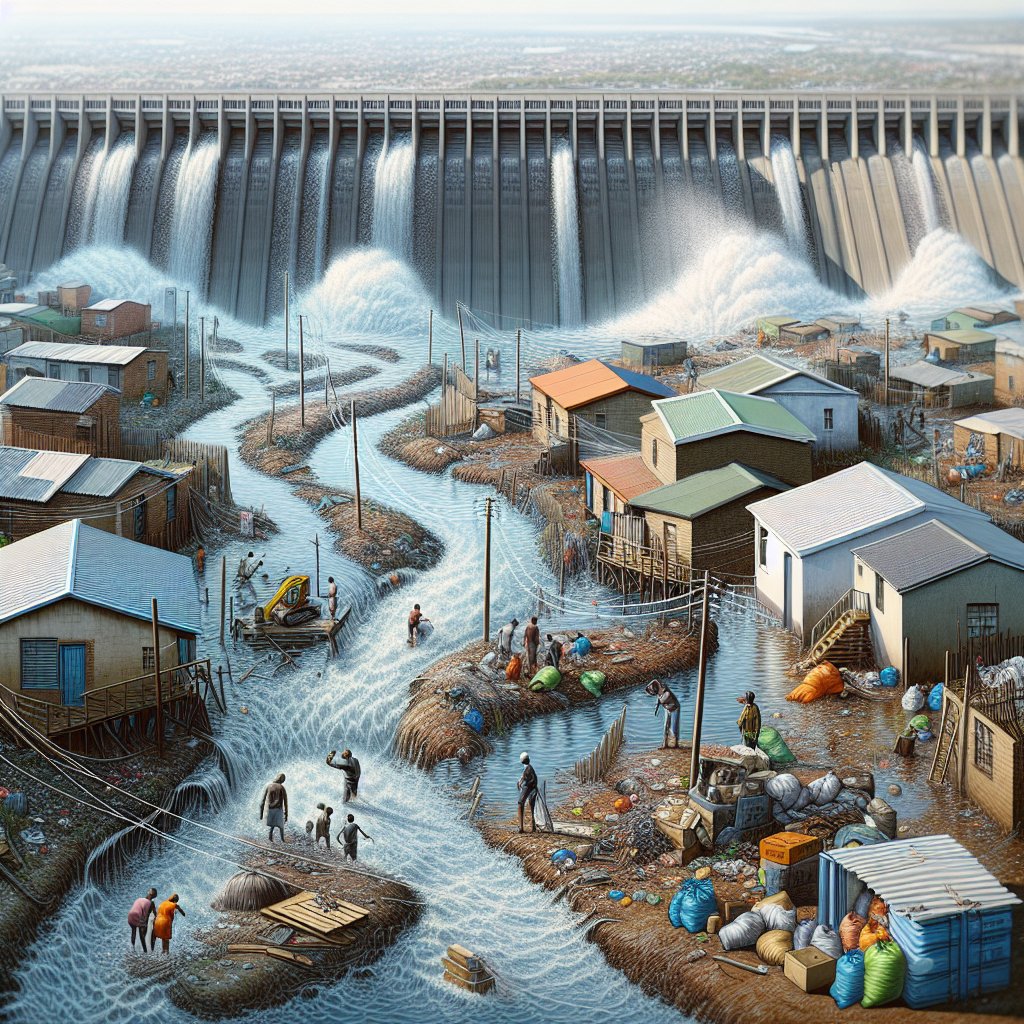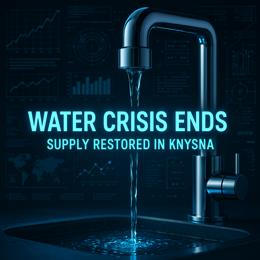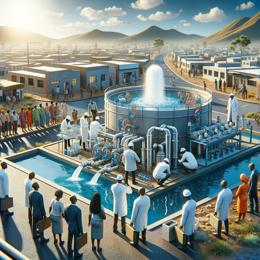Image created by AI
Cape Town Community in Crisis as Floodwaters Rise
Cape Town, South Africa, has experienced a deluge of winter rains, leading to a critical situation in the Ekuphumuleni informal settlement where a local dam has overflowed. The dam, located behind the Dunoon municipal hall, has breached its safety barriers, causing havoc for the residents. On the front line of climate impact, 172 families are grappling with contaminated water invading their homes, carrying debris, and compromising their living conditions.
Life-altering strategies are now commonplace as the affected households seek inventive ways to cope with the relentless ingress. Trench digging has become a tactical response to guide the water away from dwellings. Despite such measures, prevention of water seepage remains an elusive goal. Residents like Lindile Nxana have turned to the use of municipal refuse bags to create barriers, but these efforts fell short against the rising waters, forcing families to retreat to higher sections of their homes, suspending their lives precariously atop makeshift platforms.
Nxana's narrative is a stark emblem of desperation, echoing the broader sentiment in the settlement that more needs to be done. Memories of last winter's floods remain fresh, prompting appeals to the City of Cape Town for a sustainable resolution to their plight.
Nokuthula Peti, another long-term resident, paints a similar picture of disruption, with the flooding compelling her children to seek shelter elsewhere. The residents' sense of ownership, marked by their possession of Eskom electricity meters and personal investment in their utility expenses, underscores the severity of the crisis they confront.
Community leader Thobeka Hlamvana's role in tabulating the distressed reveals that the most vulnerable, including children, bear the brunt of the disaster. The official response has included measures such as distributing flood relief kits and milling to raise floor levels.
City officials acknowledge the settlement’s precarious location and the inherent risks it poses. Subcouncil 3, alongside the disaster risk management department, has engaged in preventative discourse, advising strategies such as elevated floor construction. Sonia Lategan, speaking for the department, emphasized the unsuitability of the land for residency. In the midst of the emergency, the humanitarian organization Gift of the Givers has stepped in, providing meals to those affected, establishing a lifeline for the community.
The overall tone reflects an impasse between immediate relief efforts and the urgent need for long-term, sustainable solutions to combat the flooding that has repeatedly engulfed the Ekuphumuleni informal settlement.










